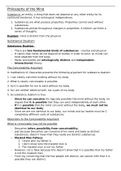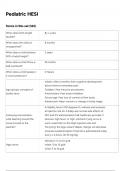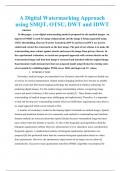Summary
Summary Philosophy A Level - Metaphysics of Mind - Dualism - AQA
This document contains part of my A Level Philosophy Revision Booklet, namely, notes on Dualism. The topics covered include: Substance dualism, property dualism, epiphenomenalist dualism, issues and evaluation of all of the above. This document, along with the rest of my revision booklet, enabled...
[Show more]







